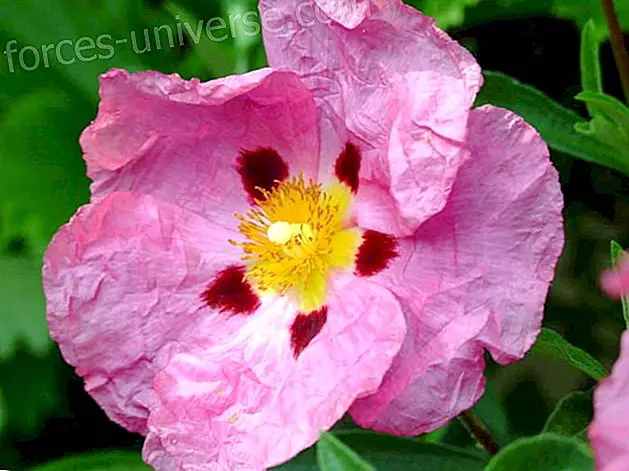
THE CHINESE GNOSIS
EXPLAINED ACCORDING TO THE FIRST PART OF TAO TE KING DE LAO TSEU
BY JAN VAN RIJKENBORGH AND CATHAROSE DE PETRI
CHAPTER 15-I
THE FIVE QUALITIES OF PHILOSOPHY WISES
A philosopher is someone who seeks wisdom. A philosopher, in the original sense, is someone who aspires to divine wisdom.
This divine wisdom is not knowledge accumulated by one method or another. It is not an extremely complicated enigmatic system, concealed under ancient missing languages, exclusively accessible to experts in ancient hieroglyphs, who spread what they want, some crumbs in specialized magazines. Think for example of the exhumation of all kinds of old manuscripts, whose content occupies so many university scholars.
No, the wisdom that is Gnosis is omnipresent. It is a sphere full of forces, elements and radiation. Divine wisdom is fundamentally comprised in a field of radiation. And he who lives in this field and possesses a living soul, takes from him not only the vital force and substance that allows transfiguration, but also wisdom.
Wisdom is an aspect of the divine life force; of the Divine Spirit of Love. When it is said of Jesus the Lord "That he grew in knowledge, wisdom and grace before God and before men", this does not mean that he received such or such education, but that it developed in the field of life Gnostic and thus growth and compliance were assured at all levels.
Reflecting on this they discover how much this process of development differs in the dialectical world, where there is no wisdom during the child's growth until adulthood. It is only about developing your intellect. Humanity knows innumerable methods of education, many of them applied by coercion, to give man a varnish of culture.
Man stays down here thanks to everything he has learned under duress and because of the needs of existence. We do not want, however, to discredit terrestrial knowledge as if we judge them useless, but only to compare them with Gnosis. Biologically, man is nothing, so he is obliged to undergo a theoretical formation to look like something and carry on the struggle for existence.
Biologically, man only absorbs material food and only breathes the astral breath of death, which only provides him with a strong bond with nature. He who is thus trapped and feels his prison deeply becomes, eventually, a philosopher in the ordinary sense of the word. Because he will seek the meaning of existence. On the basis of his dialectical being he will try to penetrate directly into the heart of things.
Now, he doesn't get it. There is nothing left but one possibility: to use the dialectical search methods, to which the experimentation will add.
Imagine that a book written in an ancient language appears. Some people examine it and say: "The content must certainly be full of wisdom, we must know it since we want to understand the meaning of our existence." But none of them can read this ancient language.
Then they may say: "That the most capable among us learn it." It is what happens and the person in question finally ends up reading and translating the book to others.
This man acts as a teacher, but he is not himself a master of wisdom, he speaks of the wisdom set forth in the book. However, this wisdom is only an intellectual definition of wisdom, never wisdom itself. Because wisdom is not found in books.
The intellectual definitions of wisdom always lead to errors and divergent opinions, which arouse the multiple philosophical systems and conceptions known below. Some authors of these systems achieve recognition, make career, are in fashion. Especially when these systems are used in teaching. You know, this is terribly disastrous and tragic, what spiritual forcing involves such knowledge!
It is impossible to attain divine wisdom in this way. If you want to acquire wisdom, true Gnosis, you must change your orientation completely. Set foot on the path of rebirth, the path of transfiguration.
You know that it demands a death and a new birth according to the rose of the heart in us, consequently a new biological state and a new growth on par with a development of knowledge and wisdom and a new state of consciousness. To each new magnetic breath that you manage to hold, drink wisdom.
To possess the wisdom that is of God is not, as some say, to possess a theoretical knowledge, "without having studied it", but to assimilate Gnosis because of a new biological state. Consequently this knowledge is one with the breath of life, fills the whole being and gives it new powers.
Suppose we say: “We have a book that contains everything you should know, but you have to read it personally. Unfortunately, this book is written in a dead language of a distant past; then you must start by learning this dead language and it will take three years to understand it conveniently. ” You would undoubtedly undertake the study.
But it is with much less effort and in much less time that you can participate in divine Gnosis, only by following the path of roses in perfect surrender of yourself, the path that makes you grow in knowledge, wisdom and grace before God and before men. The total surrender of yourself is not related to the acquisition of knowledge that you do not possess, but to the implementation of knowledge and possibilities that are yours long ago.
You have in your heart a divine principle, the rose bud. Consecrating yourself in a perfect offering to this kingdom in you acquires five new qualities, it becomes; Humble, subtle, dark, penetrating and deep.
According to dialectical wisdom, he becomes a tiny being; but according to the new nature, extremely refined in terms of its sensitivity, the result of the development of a new state of soul.
This entry was written on June 12, 2013 at 8:04 pm and is filed under Gnosis, Rosicrucian, Rosicrucian Aurea, Ancient Wisdom, Arcane Wisdom, Essential Wisdom, Tao. You can follow the responses to this post through RSS 2.0 feed. You can skip to the end and leave a response. Pinging is currently not allowed.
Chinese Gnosis: The five qualities of wise philosophers





